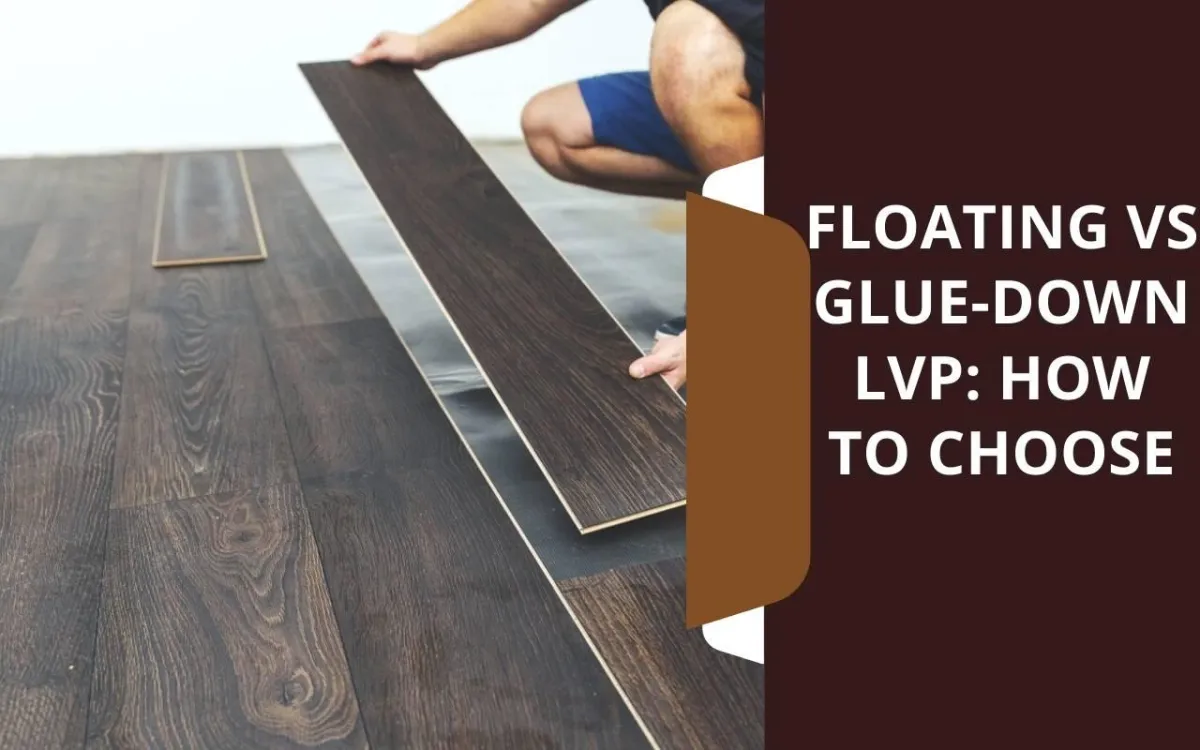
Floating vs Glue-Down LVP: How to Choose
Navigating luxury vinyl plank flooring can feel overwhelming. Choosing between floating vs glue down vinyl plank requires careful thought. Each method affects durability, acoustics, and repairability. Furthermore, the installation process influences long-term adaptability. By understanding these details, you can select the right option for your space.
Pros and Cons of Floating LVP Installation
Fast and simple installation with click-and-lock system.
Underlayment improves comfort and reduces noise.
Planks expand and contract freely with temperature.
Easy removal or reuse during remodeling or relocation.
Ideal for DIY projects with minimal subfloor preparation.
Floating floors allow flexibility and quick turnaround. Yet, they may feel hollow underfoot and show imperfections if the subfloor is uneven. Additionally, heavy rolling loads can stress the interlock system. Still, when comparing floating vs glue down vinyl plank, floating shines in adaptability.
Pros and Cons of Glue-Down LVP Installation
Stable, permanent flooring bonded directly to subfloor.
Superior resistance to shifting or squeaking under traffic.
Ideal for commercial spaces or high-traffic residential areas.
Provides dense feel and better acoustic control.
Durability enhanced by secure adhesive bond.
Glue-down installation delivers strength and solidity. However, subfloor preparation is critical, and repairs are labor-intensive. For permanent results, glue-down LVP remains highly reliable.
Factors to Consider Before Choosing Floating LVP
Floating floors work best in living rooms, bedrooms, or rental units. Minimal preparation is required when subfloors are flat and dry. Because floating vs glue down vinyl plank involves different levels of commitment, floating provides unmatched flexibility. You can uninstall or reuse planks later, saving time and resources.
Factors to Consider Before Choosing Glue-Down LVP
Glue-down LVP requires pristine subfloor conditions. Kitchens, bathrooms, and high-traffic areas benefit most from this method. While more permanent, glue-down provides long-lasting stability. For those valuing rigidity and reduced movement, it offers strong performance that floating cannot always match.
Impact on Acoustics: Floating vs Glue-Down LVP
Sound matters greatly in flooring choice. Floating LVP often relies on underlayment to soften impact noise. This reduces echoes, especially in multi-story homes. Conversely, glue-down installations naturally feel quieter and denser. By bonding directly to the subfloor, noise from movement is minimized. Therefore, floating vs glue down vinyl plank must be judged with sound control in mind.
Repairability Comparison: Floating vs Glue-Down LVP
Floating floors are easier to repair. You can unlock damaged planks and replace them quickly. Conversely, glue-down planks require scraping adhesive and careful replacement. Although more permanent, repairs are less convenient. If flexibility is a priority, floating proves more practical.
Longevity and Durability Assessment
Both options are designed for durability. Glue-down floors usually last longer under heavy use, thanks to secure adhesion. Floating floors remain strong but may stress at joints over time. Still, quality locking systems help prevent separation. Durability should influence your floating vs glue down vinyl plank decision carefully.
Subfloor Condition: Which Installation Method is Suitable?
Floating floors forgive slight imperfections. Underlayment smooths minor dips or bumps. Glue-down installations, however, demand perfectly level subfloors. Concrete must be tested for moisture and leveled precisely. As a result, glue-down requires more prep but offers stronger performance once complete.
Adaptability and Flexibility of Floating vs Glue-Down LVP
Floating floors provide high adaptability. You can disassemble them for repairs, retrofits, or relocation. This makes them ideal for changing spaces. Glue-down floors, on the other hand, offer permanent stability. Although less flexible, they provide lasting confidence in demanding environments.
FAQs About Floating vs Glue-Down LVP
Which LVP method is easier to install?
Floating LVP is simpler, using a click-and-lock system without adhesives. Glue-down requires more preparation and precision.
Is floating LVP suitable for high-traffic areas?
It works in moderate traffic areas. However, glue-down is better for heavy loads and commercial spaces requiring extra stability.
Which method offers better sound reduction?
Glue-down provides superior sound dampening naturally. Floating relies on underlayment pads to improve acoustic performance.
Can floating LVP be reused?
Yes. You can uninstall floating planks and reinstall them elsewhere, making it flexible and cost-effective.
Does glue-down LVP last longer than floating?
Yes. Glue-down LVP usually has a longer lifespan because the adhesive prevents movement, reducing wear over time.
Making the Right Choice for Your Space
Floating floors excel in adaptability and easy repair. Glue-down floors shine in stability and longevity. When comparing floating vs glue down vinyl plank, consider your space’s purpose and subfloor condition. For professional support, explore our flooring services. Ready to start? Contact us today through our contact page.




